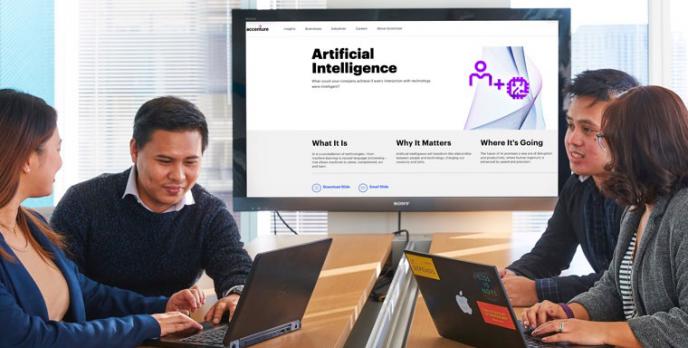Helping Future Workers Be Ready For The Future Of Work

A prominent concern regarding The Future of Work is the push-pull relationship between the pace of technological change and workers’ readiness to adapt. That readiness often traces back to the career advising the workers received as young adults. What career opportunities were introduced for them, and with what consequences? Can we do better with the present generation of young adults, and if so how? I recently interviewed Ottawa-based careers specialist JP Michel, whose views on these questions call for a wider audience.
Michel developed his ideas as he earned degrees in industrial/organizational psychology and leadership development, and worked for several years in management consulting, including five years with Pittsburg-based Development Dimensions International (DDI). At the same time, he was working part-time providing career coaching to young adults at the request of their anxious parents. He noticed his charges were deeply troubled by the inevitable question “What do you want to be when you grow up?” They thought they had to “pick one thing” for the rest of their lives. He noticed the same question was reinforced by the way high school and college career counselors suggested answers – that is, job titles – for students to consider. To illustrate his point, he talks about how people good at math often get pointed toward accounting, majoring in it a university, getting their degree, joining an accounting firm, performing years of auditing, and approaching their 30th birthday with little idea about how they got there or where to go next.
What about, though, “the future young people want to create?” He reflected on his work with DDI where the people that succeeded in transitioning to leadership saw that as a fresh challenge, rather than any continuation of the work they had done before. He experimented by asking a girl to pick out her favorite article from an issue of The Economist magazine, and she chose an article about a specialized algae to clean polluted waterways. Then they worked backwards to find the company working on the problem, the people who worked there, and what they needed to learn to be able to do what they did. A similar approach is being used by some schools using the United Nations’ Sustainable Development Goals. However, Michel was after something broader, “something that could be used with all kids,” not only with the best and brightest, but with the full range of students preparing to join the workforce.
In response, he came up with the idea of the “Challenge mindset,” described on his website as something that “flips the traditional approach and frees students to find a career path based on real-world challenges, not job titles.” He formed a company called Sparkpath, and developed a pilot set of “Challenge Cards,” describing different kind of challenges that might capture a student’s attention. Then he simply asked students to pick up to three cards they most liked, and helped them work on a path to be able to meet the kind of challenges described. He presented to the 2017 meeting of the US National Career Development Association in Orlando, Florida and sold all thirty of the card sets he brought with him. After returning home, he experienced a wave of requests for cards from other people as word of his ideas spread.
Michel also listened to his customers. Conscious he needed to work with all students, his first set of 25 cards included a couple of statements suggesting careers in the traditional skilled trades. However, the career counselors he spoke to encouraged a larger number of cards with a wider range of blue-collar choices. Partly because of that wider range, he now has 53 cards in his total set, such as the “Redesign the healthcare system,” “Take care of cars,” and “Create sustainable energy” examples shown below. One of his customers today is the Ottawa-Carleton District School Board, Ontario, which is seeing positive results from dedicating six teachers to helping students engage with the skilled trades.

